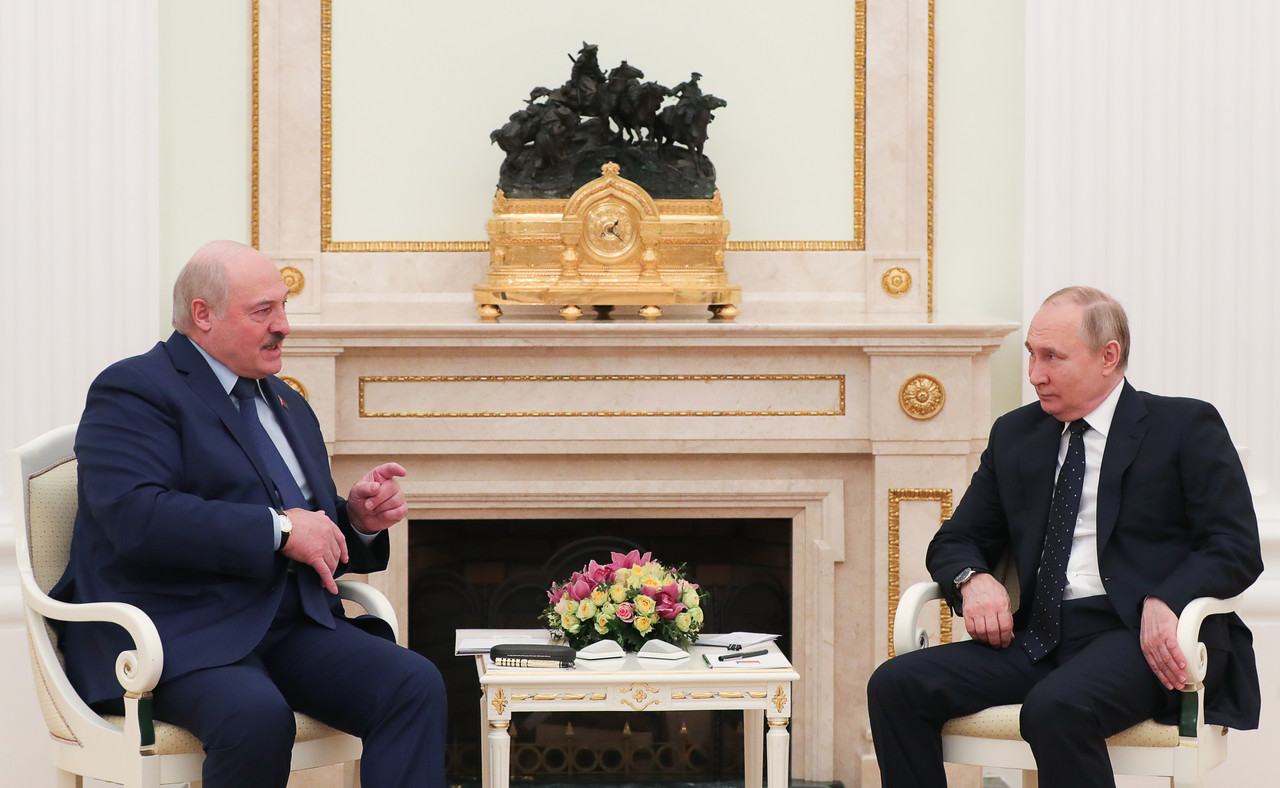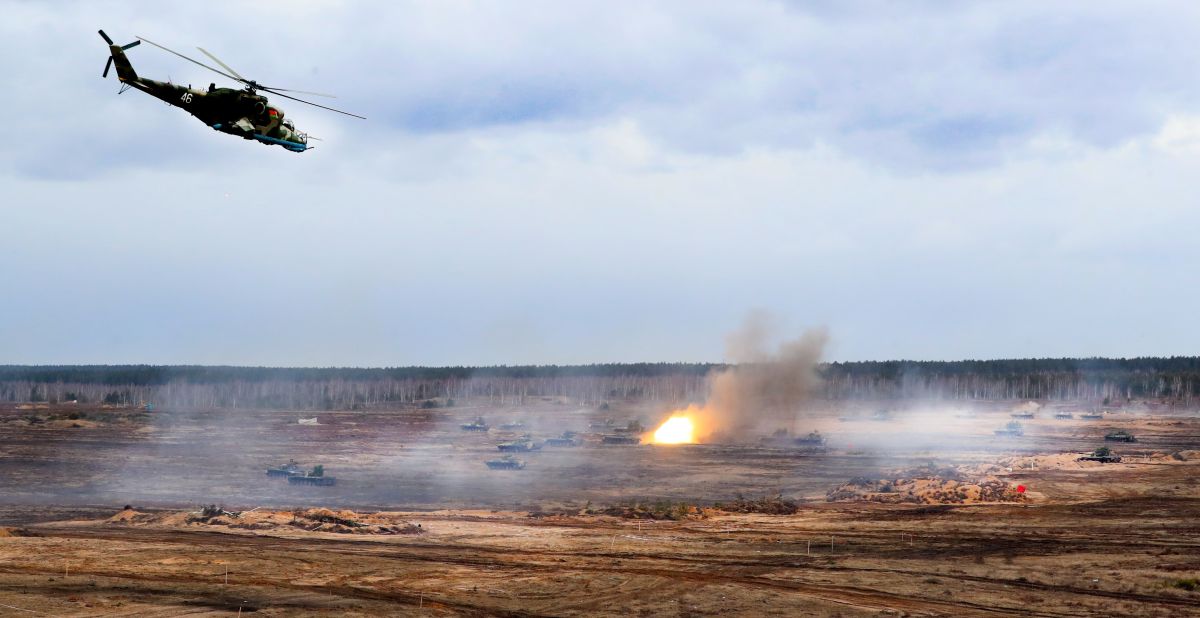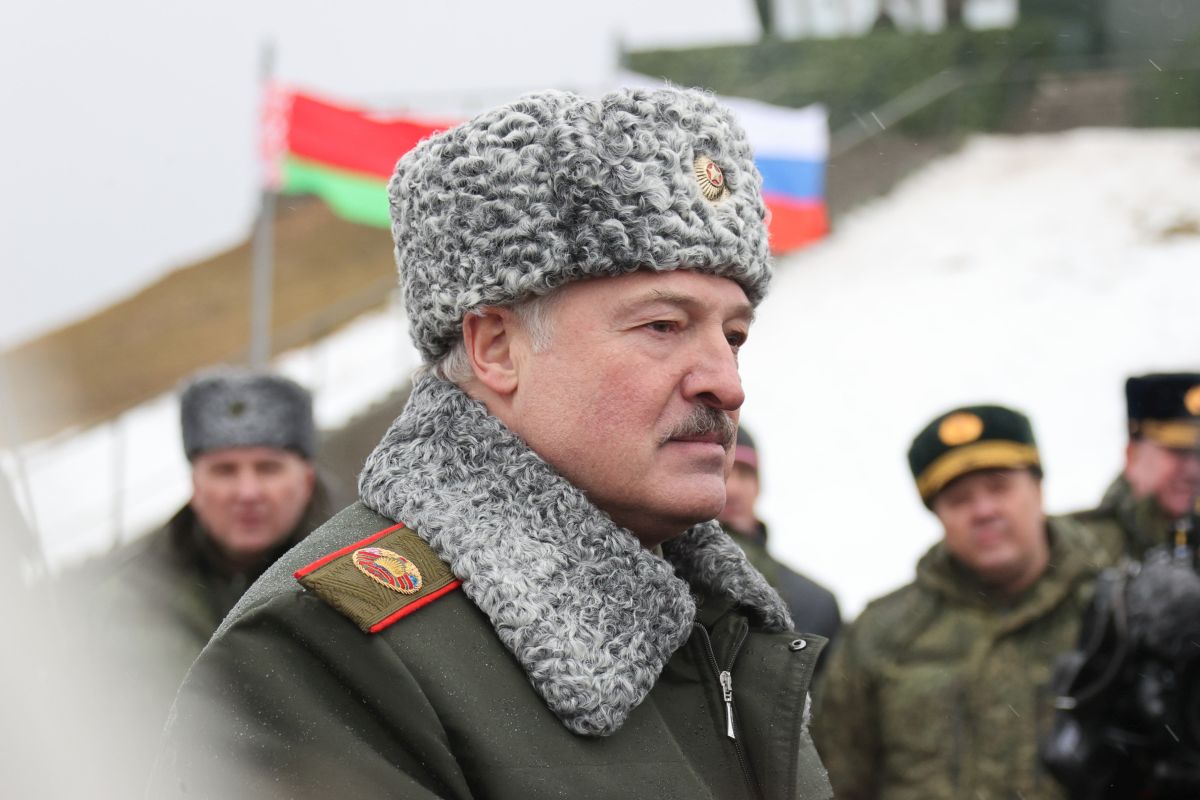Belarusian-Russian Cooperation During the War with Ukraine
Even before the invasion of Ukraine, Belarus and Russia were cooperating closely militarily and politically. Although the Belarusian army has not taken part in the fighting, Russia is using Belarus as a base to conduct hostilities in Ukraine. Maintaining such cooperation with Russia will mean further political and economic losses for Belarus.
 Mikhail Klimentyev/TASS/Forum
Mikhail Klimentyev/TASS/Forum
What does the Belarusian-Russian military cooperation look like?
Since mid-January when the first Russian military units arrived in Belarus in connection with a “combat readiness test” of Union State forces and the military drills Allied Resolve, the country has made its territory available as a stationing point for Russian armed forces. The main offensive towards Kyiv was launched from Belarus. Moreover, from Belarus, Russian troops have carried out several rocket artillery barrages on Ukrainian positions. In addition, Belarus provides rear guard, mainly air defence, for Russian troops located on its territory, as well as assistance with accommodation and food. Belarus also guarantees the Russian troops logistical support, for example, by ensuring the supply of weapons (mainly by rail), fuel from the Mazyr refinery, and the treatment and evacuation of wounded Russian soldiers mainly to hospitals in Mazyr and Homyel.
What is the risk of the direct participation of the Belarusian military in the war in Ukraine?
Although officially the Belarusian Armed Forces have more than 40,000 troops, the number of those ready to fight immediately is estimated at no more than 10,000. According to the official announcement of the General Staff of Belarus on 12 March, most of them, formed into five tactical battalion groups, were transferred to the border with Ukraine in order to guard it. Chief of Staff Gen. Viktar Hulevich and Defenсe Minister Gen. Viktar Khrenin have assured that the Belarusian army will not take part in military operations in Ukraine. According to Chatham House research, the vast majority of Belarusian society is against military involvement in the war in Ukraine. Moreover, unofficial reports are that Belarusian commanders are also against it. Joining the fighting in Ukraine could trigger a wave of protests despite the repression of Belarusian society. Nevertheless, it cannot be completely ruled out that Russia may force Alexander Lukashenka to issue such orders.
What does Belarusian-Russian political and economic cooperation look like?
Since the beginning of the Russian invasion of Ukraine, intense Belarusian-Russian contacts have been taking place at the highest state level. On 11 March, Lukashenka made another working visit this year to Moscow. The main topics of his talks with Vladimir Putin were the war in Ukraine and Western sanctions. Both countries agreed to deliver Russian weapons to Belarus (no details were given) and to further develop cooperation between the defence industries.
In turn, Belarusian Prime Minister Raman Halouchanka paid a visit to Moscow on 14 March. The most important agreement in his talks with Prime Minister Mikhail Mishustin was Russia’s consent to withdraw from paying in dollars for hydrocarbon supplies. Russia and Belarus will also cooperate on, among others, replacing imports covered by Western sanctions, such as finished machinery and microelectronics.
What are the consequences for Belarusian authorities of their cooperation with Russia?
Since the beginning of the war, the EU and the U.S. have imposed several packages of sanctions on Belarus. On 9 March, the EU prohibited transactions with the Central Bank of Belarus related to the management of reserves or assets, and to the provision of public financing for trade with and investment in Belarus. The EU restricted the provision of SWIFT services to Belagroprombank, Bank Dabrabyt, and the Development Bank of the Republic of Belarus, as well as their Belarusian subsidiaries. It also prohibited the provision of euro-denominated banknotes to Belarus. In addition, in early March, the World Bank announced that it has withdrawn from all programmes in the country. According to estimates by independent economists, this will mean a decrease in Belarusian GDP by even 20% this year and a reduction of Belarusian exports by at least a third, as its most profitable industries, such as the sale of petroleum products and artificial fertilisers, are subject to sanctions. A serious economic crisis will deepen Belarus’s economic dependence on Russia.
What further policy actions should Western countries take towards Belarus?
Given Belarus’s support of Russia in waging the war in Ukraine, Western states should maintain their current policy of increasing restrictions on Belarus, with the exception that the sanctions may be lighter or tougher depending on the actions taken by the Belarusian authorities. At the same time, aid activities aimed at the institutions of Belarusian civil society should be continued.
The probability that Russia will leave a military contingent in Belarus for the long term and the announced deployment of Russian weapons there, in particular the Iskander short-range ballistic missile and the S-400 surface-to-air missile systems, will significantly reduce the country’s independence. Moreover, the removal of part of a provision of Art. 18 of the Belarusian constitution stating that the country seeks to maintain the status of a non-nuclear state gives Russia the opportunity to deploy nuclear weapons there. This factor should be one of the elements of NATO’s risk assessment and the related need to increase the allied military presence in the countries of the Eastern Flank.





